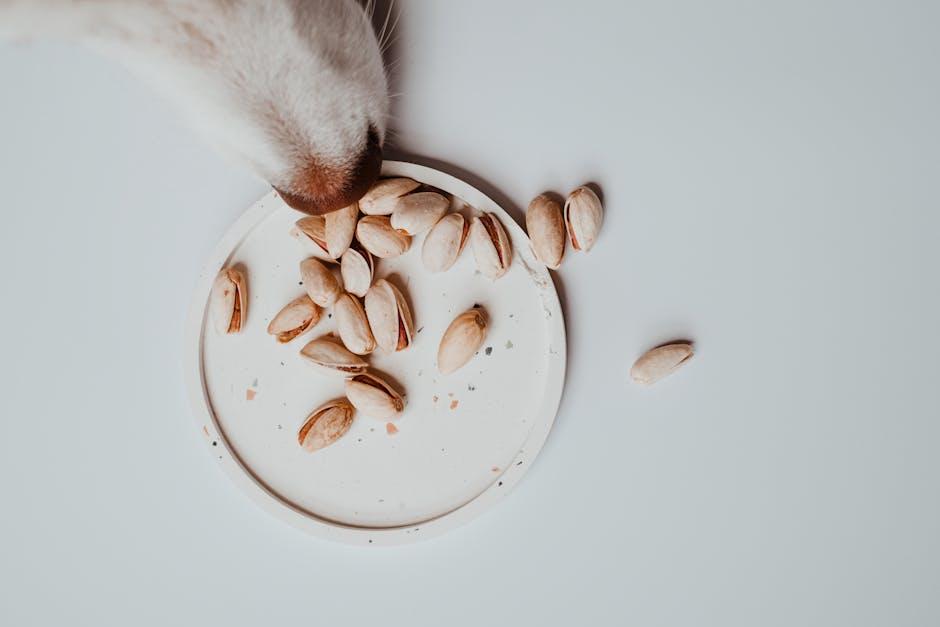As more pet owners explore plant-based diets for themselves, a natural question arises: can our canine companions thrive on a similar diet? While dogs are traditionally known as meat lovers, a growing number of veterinarians and nutritionists suggest that a plant-based diet can indeed meet their protein needs. This article delves into the nutritional science behind plant-based feeding for dogs, offering insights and guidance for pet owners who wish to explore this path. With a focus on understanding canine dietary requirements and the benefits of plant-derived proteins, we aim to provide a comprehensive overview that ensures your furry friend remains healthy and happy on a plant-based diet. Whether you’re motivated by ethical considerations, environmental concerns, or health reasons, this guide will equip you with the knowledge needed to make informed decisions about your dog’s diet.
Understanding Canine Protein Needs and Plant-Based Sources
When considering a plant-based diet for your canine companion, it’s essential to understand their protein requirements and how these can be met through plant-based sources. Dogs, like humans, require a variety of amino acids, the building blocks of protein, to maintain muscle health, repair tissues, and support a robust immune system. While animal proteins are traditionally seen as the go-to source, several plant-based options can adequately meet these needs.
Key plant-based protein sources include:
- Legumes: Lentils, chickpeas, and peas are rich in protein and fiber, making them a staple in many plant-based dog foods.
- Quinoa: This pseudo-grain is not only high in protein but also provides a complete amino acid profile.
- Tofu and Tempeh: Made from soybeans, these are excellent protein sources that can be easily incorporated into a dog’s diet.
- Chia Seeds: While small, they pack a punch in terms of protein and healthy fats.
It’s crucial to ensure that the diet is well-balanced and supplemented with necessary vitamins and minerals to prevent deficiencies. Consulting with a veterinarian or a pet nutritionist can help tailor a plant-based diet that meets all of your dog’s nutritional needs.

Balancing Nutritional Requirements in a Vegan Diet for Dogs
Ensuring that a vegan diet provides adequate protein for dogs involves a careful selection of ingredients and an understanding of canine nutritional needs. Dogs require a balanced combination of amino acids, which are the building blocks of protein, to maintain healthy muscles and bodily functions. While plant-based proteins might not always offer the complete amino acid profile found in animal proteins, they can be strategically combined to meet these requirements. Ingredients like quinoa, lentils, and chickpeas are rich in protein and, when paired with others such as sweet potatoes and peas, can create a nutritious and protein-rich meal for your furry friend.
- Quinoa: A complete protein source, providing all nine essential amino acids.
- Lentils: High in protein and fiber, supporting digestive health.
- Chickpeas: Packed with protein and essential vitamins.
- Sweet Potatoes: Offer complex carbohydrates and fiber for sustained energy.
- Peas: A good source of plant-based protein and vitamins.
It’s crucial to ensure that a vegan diet is not just about substituting animal products but about achieving a nutritional balance that supports the dog’s overall health. Consulting with a veterinary nutritionist can help tailor a diet plan that ensures all nutritional needs are met, while also considering any specific health concerns or dietary restrictions your dog may have. By carefully selecting and combining the right ingredients, a plant-based diet can indeed provide the necessary protein and nutrition for a happy, healthy canine companion.
Exploring Plant-Based Protein Options: Legumes, Grains, and More
In recent years, the popularity of plant-based diets for dogs has surged, leading many pet owners to explore diverse protein sources beyond traditional meat. Among the most promising are legumes and grains, which offer a wealth of nutrients and protein essential for your canine’s health. Legumes such as lentils, chickpeas, and peas are not only rich in protein but also provide vital fiber, vitamins, and minerals. These powerhouse plants are excellent for maintaining your dog’s digestive health while ensuring they receive adequate protein.
Incorporating grains like quinoa, oats, and brown rice into your dog’s diet can also contribute to their protein intake. Quinoa, in particular, is a complete protein, meaning it contains all nine essential amino acids that dogs need. Furthermore, these grains are typically easy to digest and can be combined with other plant-based ingredients to create a balanced meal. Here are some plant-based protein options to consider:
- Quinoa: A complete protein that is versatile and easy to prepare.
- Chickpeas: High in protein and fiber, great for digestion.
- Lentils: Packed with essential nutrients and easy to incorporate into meals.
- Oats: A good source of protein and energy, perfect for active dogs.
Remember, transitioning to a plant-based diet for your dog should be done gradually and under the guidance of a veterinarian to ensure all nutritional needs are met.

Expert Tips for Transitioning Your Dog to a Plant-Based Diet
Transitioning your dog to a plant-based diet can be a rewarding journey, but it requires careful planning and patience. Begin by introducing new plant-based ingredients gradually. Mix small amounts of the new food with your dog’s current diet, slowly increasing the proportion over a few weeks. This gradual transition helps to prevent digestive upset and allows your dog’s taste buds to adjust.
- Consult with a veterinarian or a pet nutritionist: Ensure your dog’s nutritional needs are met with the right balance of protein, vitamins, and minerals.
- Choose high-quality plant-based dog foods: Look for products that are specifically formulated for dogs and have undergone AAFCO feeding trials.
- Supplement wisely: Consider adding essential nutrients like taurine and L-carnitine if they’re not present in the food you choose.
Remember, every dog is unique. Monitor your dog’s health and energy levels closely during the transition. If you notice any changes in their behavior, coat condition, or stool quality, consult with a professional. With patience and care, your dog can thrive on a plant-based diet.

